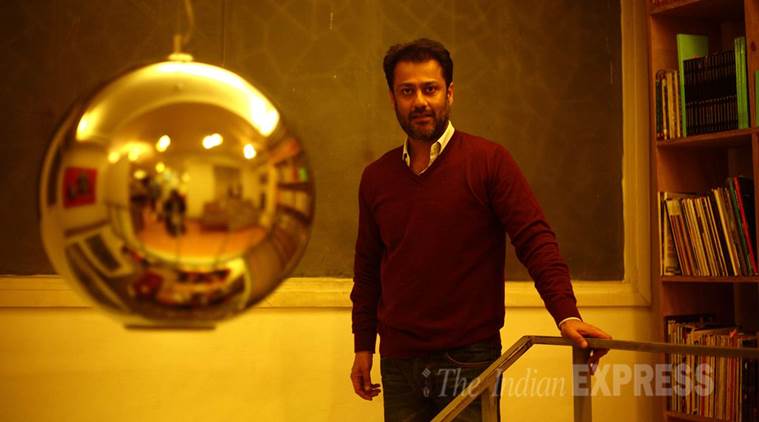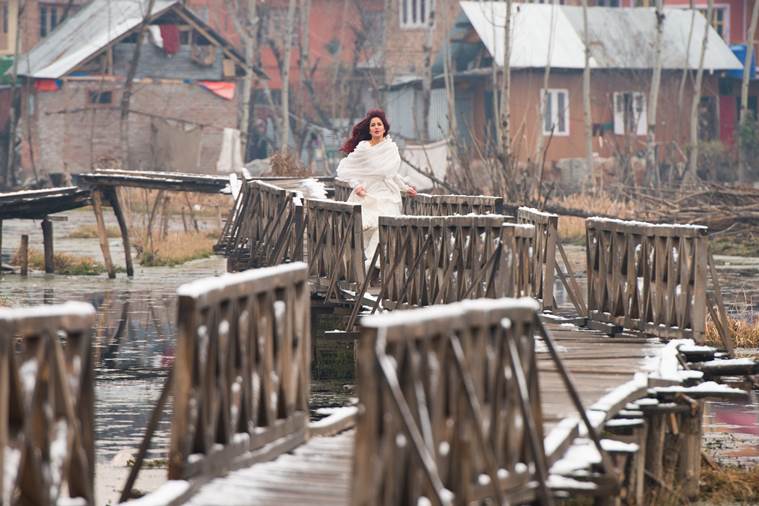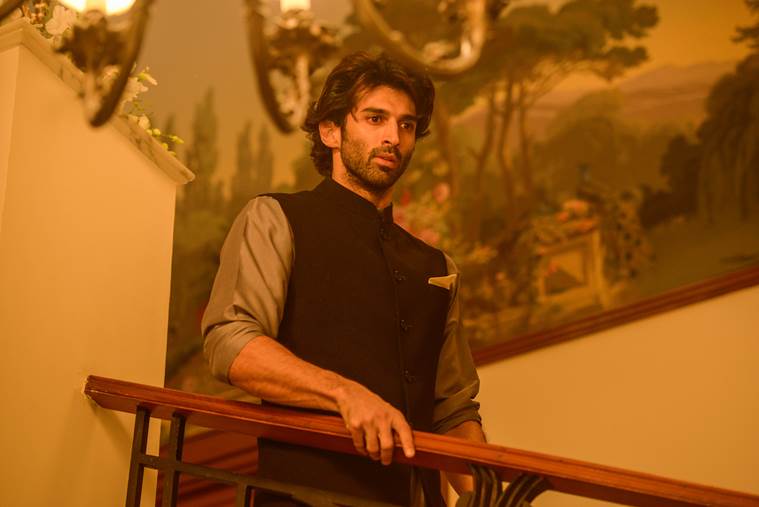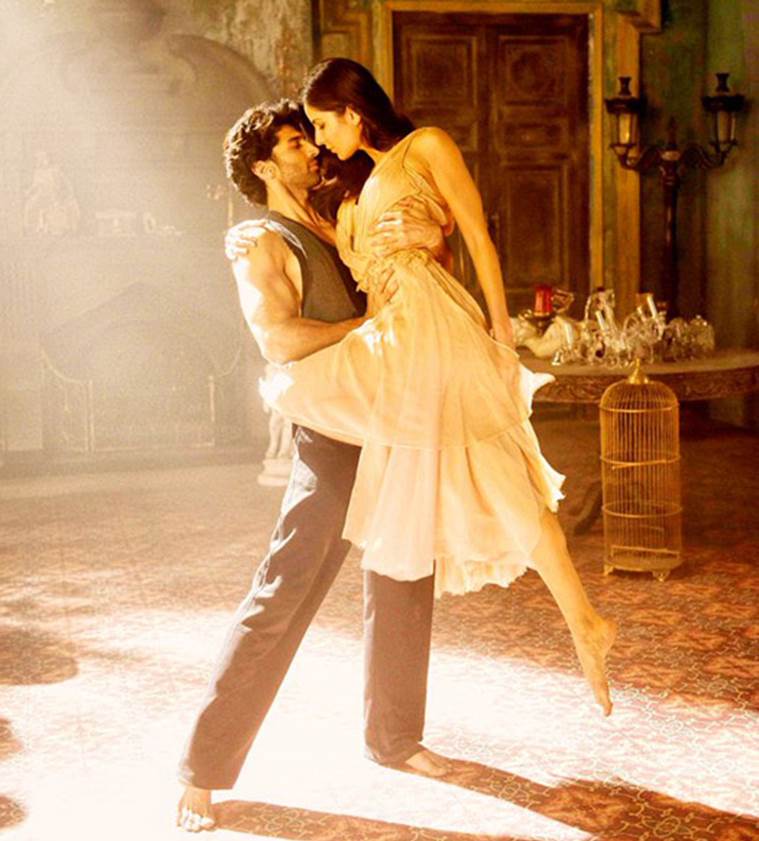 Director Abhishek Kapoor on his upcoming film Fitoor, why music plays an important part in his films and why he doesn’t want to have a signature style. (Source: Express Photo by Praveen Khanna)
Director Abhishek Kapoor on his upcoming film Fitoor, why music plays an important part in his films and why he doesn’t want to have a signature style. (Source: Express Photo by Praveen Khanna)
Fitoor is your version of Charles Dickens’s Great Expectations. What made you choose this novel?
For my next film, I wanted to dwell on love. That meant bringing heartbreak into the picture. That’s when I thought of Great Expectations. I read it when I was very young but the story stayed with me. For me, Miss Havisham is the most challenging character. Since I first read the novel, in a lot of discussions and as a pop culture reference, she has been termed “mad”. I don’t find that satisfying, it’s too superficial. In Fitoor, I am trying to understand her, get under her skin. Usually, people have their guard up, but when you’re in love, you let that person enter your vulnerable space. That can either raise you to the skies or destroy you completely. In Miss Havisham’s case, she was jilted at the altar, and the repercussions were felt even by her ward (Estella), who she taught to be a heartbreaker. Estella is a victim of her bitterness.
 A still from Fitoor
A still from Fitoor
The trailer of Fitoor has revealed a sizzling chemistry between Aditya Roy Kapoor and Katrina Kaif, who play Noor (Pip) and Firdaus (Estella). Then there’s Begum Hazrat — Tabu as your Miss Havisham. Why did you cast these three in the movie?
Tabu is actually the first actor I approached three years ago to play Begum Hazrat. And then, in the middle, Rekha was supposed to play the role, but finally it went back to Tabu. She is a fine actor, with a great command on the language. What I enjoyed was working with three actors who approach life and their careers in a very different way. Katrina is commercially very successful, so a different kind of effort goes into making her Firdaus. Tabu’s an art house icon, so another approach has to be applied to glam her up. And then there is Aditya. I feel like a chef, with these good ingredients that I put in a pot, and come up with a dish.
 A still from Fitoor
A still from Fitoor
Since the movie is set in Kashmir, is it also a commentary on its politics?
For me, there is no place in the world like Kashmir. Time stops there, as it does when you’re in love, I guess. So if I am making a love story, it has to be in Kashmir. But I am not making any political statements. It’s a backdrop, it’s where Noor sees Firdaus for the first time, when he’s a child. In Kai Po Che, I made a statement with the Gujarat riots in the background, but not in Fitoor.
Music seems to play a very important role in your movies…
I love music, it’s a force. I do feel that music is very integral to Indian movies, that’s why it’s important for my films too. It’s a tool that helps me tell my story better. I have collaborated with Amit Trivedi and Swanand Kirkire for Fitoor. We spoke a lot, understood each other. It worked in Kai Po Che too.
 A still from Fitoor
A still from Fitoor
After you released Pashmina, the song from Fitoor, there were reports that it is eerily similar to Ed Sheeran’s Thinking Out Loud.
That’s funny, because we recorded Pashmina two-and-a-half years ago. It was the first song we recorded. Maybe, he copied our song (laughs).
What do you want people to take away from Fitoor?
Forgiveness, definitely. And to understand what love can do — take you up there, and shatter you as well.
Has your success changed people’s attitude towards you?
As an actor, you can tell the change a lot better because you are constantly in touch with your peers and other filmmakers. As a director, life is a lot more contained. I stay in my own world, with my stories, so I don’t know.
Was cinema an obvious career choice for you?
I have been born and brought up on films. Jeetendra is my maternal uncle, all my friends are from the industry. I grew up on movies by Manmohan Desai, Prakash Mehra and Ramesh Sippy. World cinema only happened to me when I started making movies and wanted to understand how things were happening globally.
I grew up in a glamorous time. I would attend some of my maama’s parties and all these biggies would be there. They were all beautiful and nice to me, and suddenly the industry seemed so attractive. It’s when you grow up that you see the ugly side of Bollywood, which is equally important.
Anyway, I didn’t start out wanting to make movies. I wanted to be an actor, and I was one in the mid-’90s. I acted in five-six movies, each worse than the other. I started with Uff! Yeh Mohabbat opposite Twinkle Khanna, and did stuff such as Aashiq Mastaani. No one told me where I was going wrong, plus I thought this would be a cakewalk. All I got was more mediocre work. Television wasn’t cool at that time, so I didn’t want to do that. If you fail as an actor, people equate it to your having failed as a human being. Another beginning at anything gets tough, and one bad Friday means you won’t see anyone around you.
How did direction happen then?
Well, after this acting debacle, I just sat at home for two years, and I began writing. The more I wrote, the more convinced I was about this script, and that I was the right person to direct it. I spent five years on that film, as it took very long to figure out the finances, and then I released the trailer, but the movie only made it to the theatres 10 months later. So it looked stale, I guess. But I was desperate to just release it, even though some people told me not to. I was relieved because it meant that I could work on a new script, a new movie. In 2006, it released and tanked. This was Aryan.
And then two years later, Rock On!! happened — a movie that won both critical and commercial acclaim.
The year I released Aryan, was also the year I got hold of an iPod. So I was listening to a lot of Coldplay and Dave Matthews Band, and felt that this could be done in Hindi too. Plus, I knew people who were in bands and played a lot of music, and well, because of the iPod, Rock On!! happened. More than the music, it was about the interpersonal dynamics between these four guys, it was about their friendship.
After the credit row over Rock On!! 2, how is your relationship with Farhan Akhtar?
I am getting credit in the Rock On sequel for co-writing the story on which the screenplay is based, as per the Bombay High Court ruling, and I feel vindicated that my contribution to the film has been acknowledged. Farhan and I have been friends since we were kids, and Rock On!! was a time of shared success for us both and the beginning of a new innings for us both, so what happened was unfortunate.
Most filmmakers have a signature style. In your case, however, each movie — be it Aryan, Rock On!!, Kai Po Che and now Fitoor — is different in terms of theme and approach…
I don’t want to have a signature. I can’t repeat myself, it’s too monotonous. And I believe that the less you see of me in my films, the more my cinema makes sense. It is a deliberate move on my part. A new movie means you are a new person, and I am content as long as I am telling a new story. Take for instance, Steven Spielberg. He made Jurassic Park and Schindler’s List in the same year. That’s who I want to be. Fitoor is my first love story. Of course, there were tiny tales of love in my earlier two films too, but here, it’s the theme I am exploring. In terms of approach, over time, I have understood that we are all slaves of the script. The way you approach a film only comes from the idea or the script. Aryan demanded a certain treatment, Rock On!! required something else, and so on. I don’t like being swayed by the paraphernalia on the side. As long as I have control over the script and the budget, I am good.